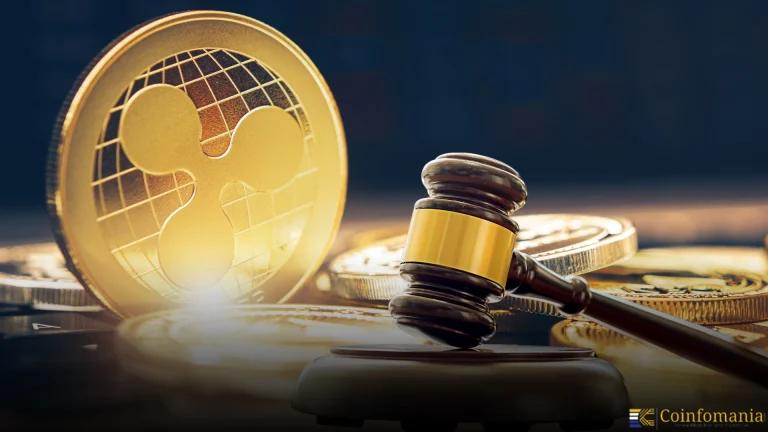Cryptocurrency Regulations in Egypt
Egypt holds a very restrictive position on cryptocurrency. CBE has explicitly banned any issues or trading of cryptocurrencies without prior approval from the authority. While it is not illegal to have individual ownership of what could be your own cryptocurrency, the activities around cryptocurrencies are still subject to severe penalties. For anyone working or investing […]

Egypt holds a very restrictive position on cryptocurrency. CBE has explicitly banned any issues or trading of cryptocurrencies without prior approval from the authority. While it is not illegal to have individual ownership of what could be your own cryptocurrency, the activities around cryptocurrencies are still subject to severe penalties.
For anyone working or investing in digital assets, understanding crypto regulations in Egypt will be the only route you will need. However, although interest in cryptocurrencies has soared in Egypt — with more than 3 million Egyptians estimated to own them — the law fails to protect people. However, businesses that are looking at blockchain or crypto-financial services face huge uncertainty too.
The Central Bank of Egypt is the dominant regulator of cryptocurrency in Egypt. Beyond the ban itself, the CBE holds a crucial position in any efforts to prevent the use of cryptocurrency as it and other institutions have outright warned of its usage since 2018, highlighting its threats to national security and financial stability.
Historical Context
First Egyptian reaction to cryptocurrency was first a skeptical one even from a religious side. But in early 2018, Egypt’s Dar al Ifta, the country’s top Islamic authority, released a fatwa making crypto transactions, haram, due to worries about security, speculation and money laundering. Non-binding or not, it informed public discourse and the government’s own outlook on the issue.
That same year, the Central Bank of Egypt warned its public of the risks involved in using, as well as trading, cryptocurrencies. By 2021, Egypt has passed Law No. 194 actually restricting all of the crypto-related actions that are not authorized by CBE. This was a change from a binding legal stance with clear penalties to informal caution.
The regulatory journey demonstrates Egypt’s shifting approach — from religious warnings to legislative enforcement. The aim has however always been consistent: it protects the national financial system and prevents speculative or indiscriminate use of currency.
Regulatory Framework
Key Regulatory Authorities
The Central Bank of Egypt is the key regulator of crypto. In Egypt, cryptocurrencies do not have any jurisdiction over any other regulatory bodies. The CBE enforces Law no. 194 of 2020 out of which Law No. 194 prohibits the creation, issuance or promotion of digital assets external to this authorization, and any transaction through these digital assets.
Licensing and Registration Requirements
Crypto exchanges and other businesses in Egypt are not licensed and do not follow a legal path. These entities are prohibited from operating in Egypt unless prior approval provided by the CBE is obtained, (none of which has been issued as of April 2025).
AML & KYC Requirements
Since cryptocurrency activities are illegal, there are no concrete Anti Money Laundering (AML) or Know Your Customer (KYC) rules designed for crypto businesses. Although general AML laws that bind financial institutions also have to be adhered to by them, they do not cover crypto because it is not part of the financial system.
Taxation of Cryptocurrency
Cryptocurrencies do not have a formal tax framework within Egypt. Digital assets do not recognize income if it is generated from digital assets and, therefore, is not taxed. But since crypto trading is banned, one may still get penalties or seizure of assets for making profits with crypto activity.
Regulation of ICOs, STOs, and Other Assets
Security Token Offerings (STOs), Initial Coin Offerings (ICOs) and such similar instruments are not regulated in Egypt. All such activities are covered by the general prohibition of crypto issuance and trading.
Egypt’s Crypto Policies
Regulatory Approach to Usage
The currencies in question are not legal tender. Their use for payments, trading or investment without CBE approval is banned. Using crypto in Egypt comes with legal risks of imprisonment and fines.
Crypto Mining
No explicit laws regarding mining do exist. But mining is just banned implicitly, as it means producing cryptocurrencies, which Law No. 194 prevents. If found out, mining operations risk legal consequences.
Government Initiatives or CBDCs
First of all, Egypt is not one of those countries that has already launched a central bank digital currency (CBDC) or has any public blockchain initiatives. However, the emphasis remains on keeping central control over the monetary system as well as preventing potential disturbance of the system from the decentralized assets.
Penalties for Non-Compliance
Breaking crypto laws can lead to imprisonment, big fines and asset confiscation. Repeated warnings from the CBE speak to this, including its official statement from September 2022, where the risks of fraud and volatility are mentioned.
Egypt’s Approach to Crypto Innovation
Regulatory Sandbox or Innovation Zones
There is no existing crypto or blockchain sandbox or test environment that has been introduced by Egypt. Due to regulatory constraints, there is little innovation in this area.
Crypto Adoption in Business
While it’s clear that it comes with legal risks, research shows that over 3 million Egyptians own cryptocurrencies. Nevertheless, its usage is very low in business. Banks or retailers do not accept cryptocurrencies and companies are discouraged from accepting blockchain payments.
Blockchain Development
In Egypt, the amount of work in blockchain development is limited. Some of the startups are also interested; however, there are no large-scale, government-backed blockchain projects in process.
Notable Challenges and Issues
Inconsistencies in Regulation
The tension between the religious ruling (fatwa) and civil law has always been tense. The fatwa is not legally binding; however, public opinion circulates the word, adding up to the decree of the legal ban by the CBE.
Challenges to Enforcement
Enforcement is hard against cryptocurrencies because they are decentralized. For some reason, crypto markets that Egyptians generally like are banned in the country, but they are allowed by platforms like Binance and Gemini to use EGP to access them. This is how enforcement is undermined and exposes the difficulty of borderless asset regulation.
Public Perception
However, even though the government disapproves of crypto, public interest in it is rising. A gap between the law and practice appears to be evident from the high number of crypto owners. While media coverage is mixed, caution and curiosity coexist.
Regulatory Trends and Future Outlook
Recent Developments
Egypt’s ban was formalized in 2020 in Law No. 194. Since then, CBE has been very strict, warning and strengthening legal risks. Crypto companies have never been subject to any legislation, as a draft law in 2019 to license them failed to become law.
Predictions for the Future
Global pressure could force Egypt to move gradually but it may continue its cautious approach. If the international standards change, there could be a shift toward a licensed, regulated environment in the coming years.
Global Implications
Other countries in the MENA region are influenced by Egypt’s strict policy. If the ban continued, Egypt could be isolated from other regional crypto developments, while if it was relaxed, the growth in regional adoption may be spurred.
Conclusion
In Egypt, the crypto regulation was very narrow and the Central Bank of Egypt had to base the Law No. 194 of 2020 it issued. There is no strict ban on possession of crypto, but nearly all its activities are banned and punishable with the most horrible punishments. However, despite the legal risks, we still see more and more Egyptian people becoming interested in having crypto and the number seems to get bigger each day, with more than 3 million Egyptians owning crypto. Given the emerging nature of crypto regulations around the world, businesses, investors and users alike need to be able to interpret the rules of the game.
Frequently Asked Questions (FAQs)
1. Is cryptocurrency legal in Egypt?
The Central Bank of Egypt is not allowing trade, promotion or issuance of cryptocurrencies.
2. Can I own Bitcoin or any other cryptocurrencies in Egypt?
No, although ownership of such services itself is not banned, they are illegal and risky to use, sell, trade, or promote.
3. Is crypto income or gain in Egypt taxable?
Crypto activity, however, is illegal in Egypt, therefore, there is no taxation system for crypto there.
4. Is Binance crypto exchange legal in Egypt?
No. These are, like many other social media platforms, operating in a sort of legal grey area, as they’re unlicensed by Egyptian authorities.
5. If I use crypto in Egypt, what will be the consequences?
You can get fined or imprisoned or you will have your assets seized according to Law No. 194 of 2020.
6. Is it illegal to mine currency in Egypt?
Mining is not directly prohibited in the area of crypto, but it is rather regarded as restricted according to the crypto prohibition.
7. Can an Egyptian business accept cryptocurrency as a method of payment?
Cryptocurrencies are NOT a legal tender and are nor accommodated in official transactions.
8. Has Egypt reached the moment of releasing a CBDC or digital currency?
No. Currently, there is no digital currency project in Egypt endorsed by the government or the utilization of the blockchain.
9. How many Egyptians use cryptocurrencies?
Almost 3 million Egyptian citizens are believed to have crypto despite it being forbidden.
10. Is there a channel or blog where one can stay informed on the Egyptian crypto laws updates?
To visit the official website for news and announcements, check the Central Bank of Egypt’s site.
Follow us on Google News
Get the latest crypto insights and updates.
Related Posts

Ripple Highlights Custody as Key to $18.9T Tokenized Assets by 2033
Shweta Chakrawarty
Author

Hong Kong SFC Issues New Custody Rules for Crypto Platforms
Shweta Chakrawarty
Author

South Korea and Vietnam eye $150B trade despite Trump tariff
Shweta Chakrawarty
Author